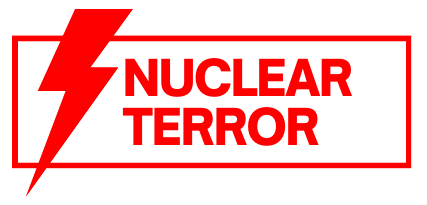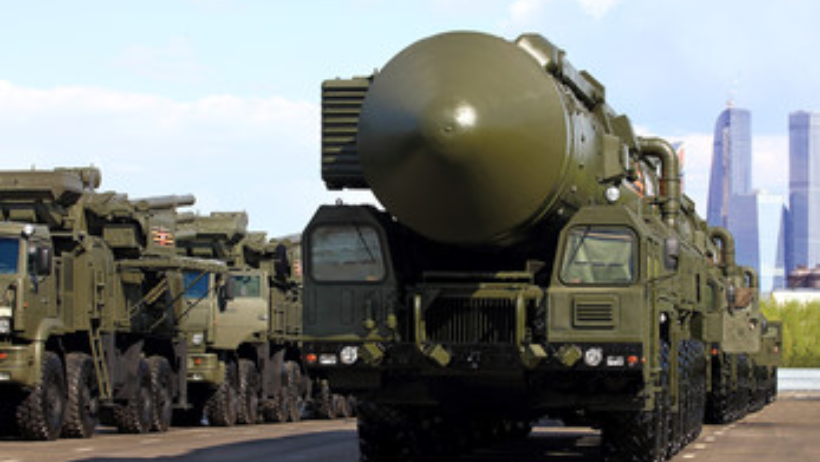If you ever find yourself facing a nuclear threat, it’s crucial to know exactly what to do. This article will provide you with a detailed guide on how to handle such a situation. From understanding the threat to preparing an emergency plan, establishing communication channels, seeking shelter, monitoring radiation levels, and even evacuating if necessary, this article will equip you with the knowledge and steps needed to stay safe. Remember, being well-informed can make all the difference in a crisis.
Understand the Nuclear Threat
Understanding the nuclear threat involves educating yourself on the potential dangers and risks associated with a nuclear event. The concept of nuclear disarmament plays a significant role in this understanding. Nuclear disarmament refers to the reduction or elimination of nuclear weapons worldwide. It is a complex and challenging process due to the geopolitical implications involved.
Nuclear disarmament has been a topic of international debate for decades. The possession and proliferation of nuclear weapons have significant implications for global security and stability. Understanding the risks associated with these weapons is crucial in evaluating the potential consequences of a nuclear event.
One of the primary concerns with nuclear weapons is their destructive power. The detonation of a nuclear bomb can cause massive destruction, with the potential to wipe out entire cities and kill millions of people. This devastating impact makes it imperative for individuals to comprehend the magnitude of a nuclear threat.
Moreover, geopolitical implications play a significant role in understanding the nuclear threat. The possession of nuclear weapons by certain countries can lead to tensions and conflicts on a global scale. The potential for these weapons to fall into the wrong hands or be used as a means of aggression raises serious concerns about international security.
Prepare an Emergency Plan
To prepare for a nuclear threat, you should create an emergency plan. This plan should outline the necessary steps to take in case of a nuclear attack or threat. First and foremost, you need to gather emergency supplies. These supplies should include a sufficient amount of food, water, and medical necessities to sustain you and your family for at least two weeks. Additionally, you should have a battery-powered radio and flashlights with extra batteries, as well as a first aid kit and any necessary prescription medications.
Next, it is crucial to establish an emergency contact. Choose a family member or friend who lives outside the immediate affected area to serve as your primary contact. Make sure everyone in your household knows this contact’s phone number and address. In the event of a nuclear threat, it may be challenging to communicate, so having a designated contact person can help ensure the safety and well-being of your family.
Furthermore, your emergency plan should include an evacuation route. Identify safe locations or shelters in your area, and determine the best route to reach them. Familiarize yourself with evacuation procedures and establish a meeting point for your family members in case you get separated.
Establish Communication Channels
Make sure you have multiple reliable communication channels established to receive updates and information during a nuclear threat. Establishing protocols for communication is crucial to ensure that you are well-informed and can make timely decisions. Firstly, identify reliable sources of information such as local emergency management agencies, government websites, and official social media accounts. These sources will provide accurate and up-to-date information regarding the nuclear threat and any necessary actions you should take.
Next, establish emergency contacts within your family or household. Ensure that everyone knows who to contact and how to communicate in case of separation during the threat. It is important to have a designated meeting point and a backup location in case the primary one is inaccessible. Additionally, consider using smartphone applications that provide emergency notifications and alerts. These applications can send real-time updates and warnings directly to your device, keeping you informed even when you are on the move.
Lastly, keep a battery-powered or hand-crank radio handy. During a nuclear threat, it is possible that traditional communication channels such as internet and cell phones may be disrupted. A radio will allow you to receive important information through emergency broadcasts. Remember to regularly check and test your communication channels to ensure their reliability and functionality. By establishing multiple communication channels and protocols, you can stay informed and make informed decisions during a nuclear threat.
Seek Shelter and Monitor Radiation Levels
If you are in a nuclear threat situation, find a shelter and regularly monitor radiation levels. This is crucial to ensure your safety and minimize the potential health risks associated with nuclear fallout. Here are some important steps to consider:
- Locate a suitable shelter: Look for a sturdy building or underground facility that can provide protection from radioactive particles. Stay away from windows and exterior walls, and choose a location with minimal air leakage.
- Seal the shelter: Use plastic sheets, duct tape, or any available material to seal off doors, windows, and ventilation openings. This will prevent radioactive particles from entering the shelter.
- Stay indoors: Limit your exposure to external radiation by staying indoors as much as possible. If you need to go outside, wear protective clothing such as long-sleeved shirts, pants, and a hat to minimize skin exposure.
- Monitor radiation levels: Use radiation monitoring equipment to regularly check the radiation levels inside and outside the shelter. This will help you assess the situation and make informed decisions about when it is safe to leave the shelter.
- Follow official instructions: Stay informed through emergency broadcasts and follow the guidance provided by authorities. They will provide updates on the current situation, evacuation plans if necessary, and any other important information to ensure your safety.
Evacuate if Necessary
If you find yourself in a situation where evacuation becomes necessary during a nuclear threat, it is crucial to have a plan in place. Knowing the safe shelter options available to you is essential, as well as understanding how to access emergency communication methods. These points will help ensure that you can evacuate efficiently and safely in the event of a nuclear threat.
Safe Shelter Options
Find a secure location to take shelter and evacuate if needed. In the event of a nuclear threat, it is crucial to have a safe shelter option. Here are some options to consider:
- Underground Bunkers: These structures provide excellent protection against radiation. They are designed to withstand the impact of a nuclear blast and can offer a safe haven for an extended period.
- Protective Clothing: Wearing the right clothing can minimize exposure to harmful radiation. Invest in a hazmat suit, gloves, boots, and a gas mask to protect yourself from radioactive fallout.
- Basements: If you don’t have access to an underground bunker, seek shelter in the basement of a sturdy building. Stay away from windows and doors, and create a makeshift fallout shelter using heavy furniture and blankets.
- Interior Rooms: If you cannot find a basement, seek shelter in a room located towards the center of the building, away from windows and external walls.
- Community Shelters: Familiarize yourself with designated community shelters in your area. These shelters are specifically designed to withstand nuclear threats and provide protection for a large number of people.
Emergency Communication Methods
How can you effectively communicate in an emergency situation and evacuate if necessary during a nuclear threat? In such a dire situation, it is crucial to have reliable emergency communication methods and devices at your disposal. These tools can help you stay connected with authorities and loved ones while ensuring a safe evacuation. One of the most common emergency communication methods is using mobile phones or smartphones. These devices can be used to make emergency calls, send text messages, or access emergency alert systems. Additionally, two-way radios or walkie-talkies can provide a reliable means of communication, especially in areas where cell phone reception may be limited. It is also essential to have a battery-powered or hand-cranked radio to receive emergency broadcasts and updates. By having these emergency communication devices readily available, you can effectively communicate and coordinate your evacuation efforts during a nuclear threat.
Take Care of Your Physical and Mental Health
To ensure your well-being during a nuclear threat, it is crucial to prioritize both your physical and mental health. Implement stress management techniques such as deep breathing exercises, mindfulness, and engaging in activities that promote relaxation. Additionally, keep an emergency preparedness checklist handy to ensure you have essential supplies, medications, and resources readily available in case of an emergency.
Stress Management Techniques
Take care of your physical and mental health by prioritizing self-care during a nuclear threat situation. Stress relief and coping strategies are essential in such high-stress situations. Here are some techniques to help you manage stress effectively:
- Deep Breathing: Take slow, deep breaths to calm your nervous system and reduce anxiety.
- Exercise: Engage in physical activity to release endorphins, which can boost your mood and alleviate stress.
- Meditation: Practice mindfulness meditation to promote relaxation and mental clarity.
- Maintain a Routine: Establishing a daily routine can provide a sense of stability and control during uncertain times.
- Reach Out for Support: Stay connected with loved ones and seek professional help if needed. Having a support system can provide emotional comfort and guidance.
Emergency Preparedness Checklist
Ensure you have an adequate supply of essential items for your physical and mental well-being during a nuclear threat. Having the necessary emergency supplies can help you stay prepared and maintain your overall health in such a situation. First, stock up on non-perishable food items, such as canned goods, dried fruits, and protein bars, to sustain yourself for an extended period. Don’t forget to include a sufficient supply of clean water, aiming for at least one gallon per person per day. Additionally, gather personal hygiene products, medications, and a first aid kit to address any medical needs. It is also crucial to have emergency contacts readily available, including local authorities, family members, and friends. Keep a list of important phone numbers and addresses, as well as any relevant medical information. By being well-prepared, you can better handle the physical and mental challenges that may arise during a nuclear threat.


